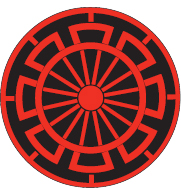

Truth develops constantly with the progress of times. Mao Zedong pointed out in his writing On Practice: “The movement of change in the world of objective reality is neverending and so is man’s cognition of truth through practice.” Keeping this in mind while evaluating Sun Tzu’s Art of War, a correct conclusion can be reached.
Generally speaking, when ancient academic works are assessed, it is not wrong to affirm or negate something by saying: “Because of limitations of times and class. . . .” But it seems to provide the readers with a deeper understanding of the ancient work if it is appraised with an eye to the background in which it was written.
The main shortcomings of Sun Tzu’s Art of War are that it does not discuss the nature of war. According to the statistics gathered by historians, there occurred approximately four to five hundred big or small wars during the Spring and Autumn Period when Sun Tzu lived. Mencius, a famous scholar who lived some time later than Sun Tzu, made a widely acknowledged conclusion: “There were no just wars during the Spring and Autumn Period.” Is this conclusion correct? The answer is negative.
The wars between the big powers during that period were definitely unjust, but those launched by smaller nations against the aggression of big powers were quite another matter. For instance, Sung, a small state, was besieged by two big powers, Jin and Chu, and its people had to exchange their children with one another to be eaten as food. Was not Sung on the just side when it fought against the aggressors?
In the history book Zou Zhuan, there were accounts of many uprisings by serfs from the seventh to sixth century B.C. Famous among them were the insurrection of serfs in Qi against the construction of city walls, and the rebellion of serfs in Zhen against the ruling class. Were the serfs not on the just side when they rose against oppression of the ruling class and the serf owners as a result of intensification of class contradictions? Unfortunately, this is not considered in Sun Tzu’s Art of War. This could not but be regarded as an outstanding shortcoming and a policy of keeping the soldiers in ignorance.
This obscurantist policy was a flaw in Sun Tzu’s work. No doubt, he wrote: “Regard your soldiers as your children” and “Command them with civility but keep them under control by iron discipline.” It seems that he was propagating concern for soldiers and attention to discipline in the army. But what he did during the war was quite the opposite. He went so far as to maintain that the commander “should be capable of keeping his officers and men in ignorance of his plans. . . . He drives his men now in one direction, now in another, like a shepherd driving a flock of sheep, and none knows where he is going. . . . The business of a general is to kick away the ladder behind soldiers when they have climbed up a height.” All these can be said to be reactionary ideas of looking down upon the laboring people.
The second shortcoming is that he overemphasized the function of generals. He stated: “The general who understands how to employ troops is the minister of the people’s fate and arbiter of the nation’s destiny.” Related to this was another view of his: “There are occasions when the commands of the sovereign need not be obeyed.” There have been quite a few generals who, affected by this view, used it as a pretext for not obeying orders from the supreme command. Is this view correct? Since there has been war by mankind, it has always been conditioned by politics, and has never and in no way departed from politics. Therefore, it often causes irremediable damage to the nation if long-term and overall interests of the state are given up for the sake of local interests in the battlefield.
It is argued that in ancient times communications were poor and difficult and situations at the front changed quickly, so commanders had to act arbitrarily in order to cope with the changing situation. Tenable as the argument might be, the situation today has greatly changed. Nowadays, with the help of telecommunication, television, and man-made satellites, the supreme command has every small change in the battlefield at its fingertips. It is, therefore, entirely in a position to readjust its deployment or tactics in accordance with the new situation. A commander is in no way allowed to disobey orders from the supreme command for local interest. As a common rule of war, Sun Tzu’s principle, “There are occasions when the commands of the sovereign need not be obeyed,” is now obsolete.
The third point is that some of his principles are too rigid and mechanical. For example: “Do not thwart an army which is returning homewards. One must leave a way of escape to a surrounded enemy, and do not press a desperate enemy too hard.” These principles are contradictory to many others in Sun Tzu’s Art of War itself. For instance, consider his advice to “. . . avoid the enemy when its spirit is keen and attack it when it is sluggish and the soldiers are homesick.” It is just the opposite of the former ones mentioned. The latter principle is, without a shadow of doubt, the correct one.
Sun Tzu suggested in the chapter entitled “Offensive Strategy” to surround an enemy when you are ten to his one. This is the idea of the “war of annihilation,” which is certainly correct. Of course, you should not leave a way of escape to the enemy if you surround him. During the Huai-Hai campaign, if the PLA had left an outlet for the enemy to flee, it would have been as if it let the tiger return to the mountains. In that case, how could the PLA have achieved the victory of totally wiping out the enemy forces? The view that “one must leave a way of escape to a surrounded enemy” is considered too rigid because of the word “must.” It can also be feasible or even advantageous to leave an outlet free for the enemy in case one wants to wind up the campaign speedily or to lure the enemy to fall into an ambush.
As for the doctrine to “not press a desperate enemy too hard,” it is simply ludicrous. Mao Zedong had two very famous verses in one of his poems, which read:
With power and to spare we must pursue the tottering foe;
And not ape Xiang Yu the Conqueror seeking idle fame.
Sun Tzu’s Art of War is a military work written more than two thousand years ago. However, many of its doctrines, principles, and rules are still of practical and universal significance. Therefore, it remains a valuable asset for the Chinese people and will remain so in any future war against aggression.
